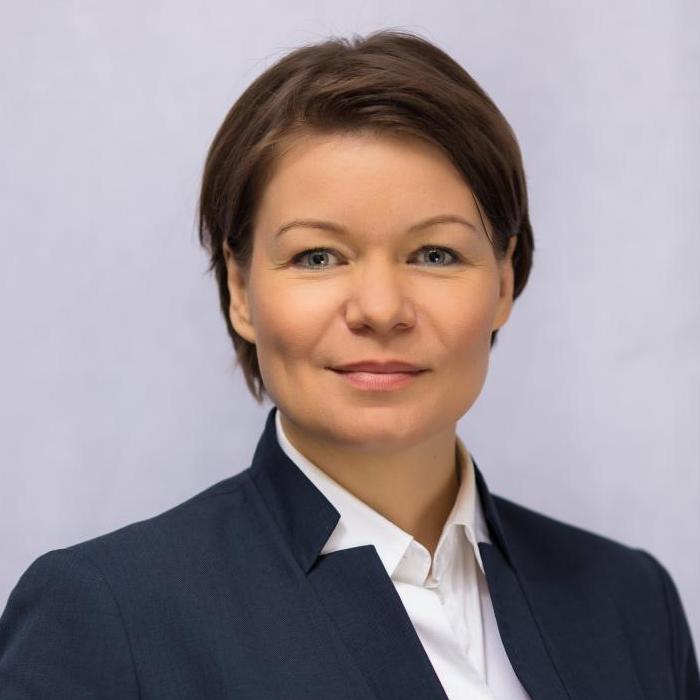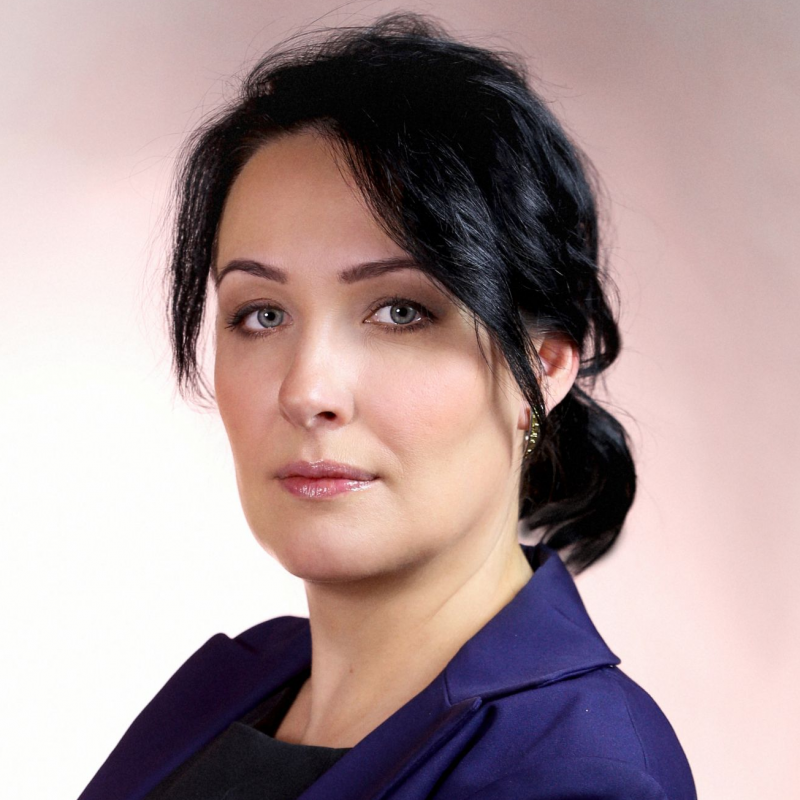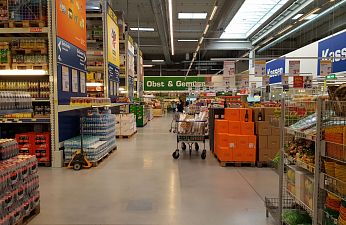Several sources of MarketMedia who have close ties with the company say Auchan has started a big corporate restructuring potentially leading to the closure of dozens of the chain’s supermarkets in Russia in the mid-run. The project named Renaissance is supervised by the chain’s former Supermarkets Director Olivier Omnes.
Employees of the company told MarketMedia about the plans of the company’s management to reduce the staff of the head office by 50 percent.
“Every day they dismiss two or three people on the ground of redundancy. It is not Renaissance, it is some kind of murder,” said one of MarketMedia’s sources. In the mid-term the company plans to shut down up to 100 supermarkets in Russia, he said. Officially Auchan currently owns 314 supermarkets in Russia.
“Only this year they want to shut down 30-40 Atac brand stores,” said a source familiar with the situation.
The other players of the market also heard about Auchan’s plans to shrink one of its chains. However, they understood the plans related not to Atac but to Auchan’s drogerie Lillapois. In January Auchan officially announced that it refused to develop the chain in Russia. When Auchan came to the Russian market in August 2016, it planned to annually open 20 Lillapois outlets. However, by January 2018 only three Lillapois stores operated in the country. The sources of MarketMedia insisted that the shut down news related to Atac brand.
Renaissance is the internal name for the process of analyzing the cost-effectiveness of facilities within the framework of the company’s operating activities. It is common practice for retail to close unprofitable stores and to focus on opening more potentially productive outlets.
In 2019, Auchan Retail Russia will close 30 unprofitable stores. Most of them are supermarkets and neighborhood shops. The latest example is the closure of free standing Lillapois cosmetics stores in Moscow due to the reintegration of their product range into large hypermarkets. The analysis showed that the profitability of the cosmetics department in the hypermarket is higher than in free standing stores.
We do not confirm the information about the mass layoffs at the company’s head office. Currently in the framework of the automation project and the centralization of the HR management department that has no relation to Renaissance the regional payroll offices have been closed. The company offered the employees reassignment to similar positions in Moscow or other positions within their region. Twenty five people refused the offers.
Letter from the Boss
Francois Remy, Chief Executive Officer of Auchan Retail Russia, informed the company’s employees about the major changes in the company’s Russian business in a letter in the end of January. Remy explained that the decision “to reduce the staff and pull together the company’s management” was made “in the context of complex financial results in order to improve work efficiency”.
Remy said 2019 was “to mark the restart of Auchan Retail Russia”. However, the market players considered the reorganization a late measure.
“I am afraid it is the beginning of the end. As a result of numerous mistakes the company will lose the competition and most probably will leave the Russian market in the next two or three years. Unfortunately Auchan is an example of how endlessly continued advantages turn into the opposite,” said one of MarketMedia interlocutors.
However, Maria Kurnosova said Auchan Retail Russia was not planning to leave the Russian market.
“In the near future we will open the biggest logistics center in Europe “Yuznye Vrata” in Moscow region, as well as hypermarkets in Chelyabinsk and Pushkino,” Kurnosova said.
Six Reasons
Arnaud Trousset, co-founder and Director General of Geomatrix Predictive Analytics (who had worked for Auchan chain for more than three years), said Auchan’s main problem was a mistake in the development strategy.
“The chain has been working in the hypermarket format for a long time and invested a lot in it. Meanwhile the future of grocery retailing turned out to be in the formats of “supermarket” and “neighborhood stores”.
However, Auchan announced the development of this format too late, opening the first facilities only in 2013, when Pyaterochka neighborhood store chain already had more than three thousand stores, and Magnit had more than seven thousand shops. In 2018, Auchan had only 12 neighborhood stores, while Magnit and Pyaterochka had more than 26 thousand ones. The French retailer experimented more with large formats such as Auchan City, Rainbow, Auchan Garden. It has been trying to launch Auchan Drive for 10 years, but has never opened a single store. Their attempts to diversify the cosmetics business with the Lillapois project also ended up with the closure of this chain in 2019,” Arnaud Trousset said.
The other sources of MarketMedia named five more reasons that may turn to be fatal for the company’s business.
“First of all, Auchan is a creation of Gerard Mulliez who nurtured it from one store up to a mega empire. When Gerard left his active management work it was like Auchan getting unplugged. While the presentations became longer the activity went down. The company had more bureaucrats coming and more businessmen leaving,” one of Auchan’s former employees said.
“The second problem is that Auchan is based on the principle of decentralization. It works well for a small retail company and stimulates the initiative. At the same time this approach turns a big company into an uncontrolled confederation. Ill tongues have long been calling Auchan a confederation of independent stores with no unified range of products, no unified price policy, except for common principles, and no unified merchandising. The company’s business processes are not formalized and not documented. Each hypermarket forms its business process individually. All Auchan stores are different. Such approach leads to chaos in case with big size companies,” another source of MarketMedia said.
“Besides the company is inflexible regarding its format. All new and non-standard forms of Auchan City, Raduga or supermarkets are the stepchildren of Auchan’s flagship format of 15,000 square meters stores that worked well in Moscow, Yekaterinburg and Samara. However, it did not work well in the other cities. Even in St. Petersburg it took several years to make this format breakeven. The thing was that the most popular format in Russia is the one from seven to eight thousand square meters. Auchan’s management flushed with success in Moscow had long ignored that fact. The five biggest Auchan hypermarkets were located in Moscow, and each of them had the turnover of 300 million Euro in the times of Euro rate making 40 rubles. However, the dizziness with success makes for misery,” a source at the market said naming the third reason.
The fourth reason had to do with the obvious problems of the management. According to one of Auchan’s former employees the company had never become an international business.
И, наконец, пятая проблема, которая является следствием нетребовательности менеджмента, — это отвратительный ассортимент. «Эрозия ценового преимущества превращает магазины в помойки», — говорит один из собеседников MarketMedia. “It is a French company with the international partnership. People who don’t speak French are unable to make a career in the company. The French top managers don’t trust the local personnel enough. At the same time they set a low bar of demands both for themselves and for their subordinates. Compared to English business culture Frenchmen do not like to press in. They consider getting tough with somebody as mauvais ton. This characteristic multiplied by decentralization formed a favorable atmosphere for those who do not like to work hard. You won’t get much praise for doing some work but you either won’t get much criticism for not doing enough work. To get fired one needs to do something completely unacceptable. In this situation the company is left with the bureaucrats who get little criticism but who also do not give hard time to the others. The ambitious specialists left the company.
Meanwhile the fifth reason which is the result of undemanding management is the disgusting assortment of goods.
Auchan in Russia
Auchan came to Russia in 2002. The first stores were open in the form of hypermarkets in Moscow outside the Moscow Ring Road. Initially Auchan was very popular with the population. On the weekend thousands of cars headed to Auchan, people with carts full of products formed long lines to the hypermarket’s cashdesks.
The retailer lost its competitive advantage when in 2014 the government of the Russian Federation announced countersanctions and Auchan could not import many French goods to the country, including wine and cheese that Russians liked to visit the hypermarket for.
Currently by official information Auchan has 338 facilities, while its staff makes 41,000 people. However, over the last years the French retailer has been losing a share of the market. By estimation of INFOline the revenue of Auchan chain in Russia has been going down for several years in a row. Thus, in 2015 the turnover of the chain made 373, 1 billion rubles exclusive of VAT while in 2018 it made only 306, 4 billion rubles. At the moment Nikolai Gabyshev, the managing partner of investment company Peregrine Capital, estimates the operating business of Auchan in Russia at 100-120 billion rubles exclusively of its real estate and debt.
Auchan is trying to change. For instance, it launched an interesting development program Privat label, changed the strategy of development, and announced the start of neighborhood grocery format. However, it takes too much time for the company to make decisions which ideally should be done faster. For instance, Auchan was one of the first top 10 FMCG chains to have launched the Internet sales, but it delivered only non-food range goods.
“It started the online food delivery only last year when the other chains were already doing it,” Ivan Fedyakov, Director General of INFOline Information Agency said. Fedyakov agreed with his colleagues that having lost the competitive advantages the company began to lose to its competitors in regards to format and locations. Many Auchan stores are located far away from residential areas.
Fedyakov said few of international chains are able to be successful in food retail in a foreign country. Local food chains usually take the leading positions.
“I had worked in Auchan for two years. All that time the company had been going through endless reorganizations that the authorities explained by the plans to improve the business. However, in fact there was no improvement. What was the reason? Auchan is a company with hierarchy where building a career should be done following the code of etiquette and loyalty. Probably the company’s leaders in Europe want to change and develop something. However, according to my observations, in the Russian office of Auchan top managers were engaged not in the business development, but in the sharing of funds.
Therefore since 2002, the moment of Auchan’s arrival to the Russian market, it has not changed at all while the market and the customers have become different. We live in a global world with high competition. It should be taken into account. However, Auchan works as if it exists on the other planet. First of all, it places its stake on the low budget products of questionable quality and gradually turns into a dump. People often leave the chain’s stores in shock because of low service, dirt, and the product grid offering practically no choice. It is a complete disappointment.
Secondly, the company permanently reduces its staff to provide the well-being of the top management. In the end the remaining employees have to work much more for the same money.
Third, the top managers of Auchan are not ready to refuse from bonuses while the salaries of individual contributors in the company are much lower than the payments for similar positions at the market.
Fourth, the company declares that it is spending money on development, innovation and technology. But the customer does not feel it. A year ago, after the competing Globus chain opened the first store in Russia in a new format, the management of Auchan became nervous, and there was talk that something had to change. They even tried to remake the shops. But nothing much was done. They introduced only a double customer service for payments when a cashier first scans the goods, and then people are offered to go to the terminal that receives money. This is a complicated and long procedure with no alternative. The customers get nervous. In all regions, the customers had a lot of negative comments about that system. It is impossible to go on like that. Therefore Auchan should either undergo a 180-degree turn and reform or it will inevitably leave the Russian market in the next two or three years.

 Подписаться
Подписаться





